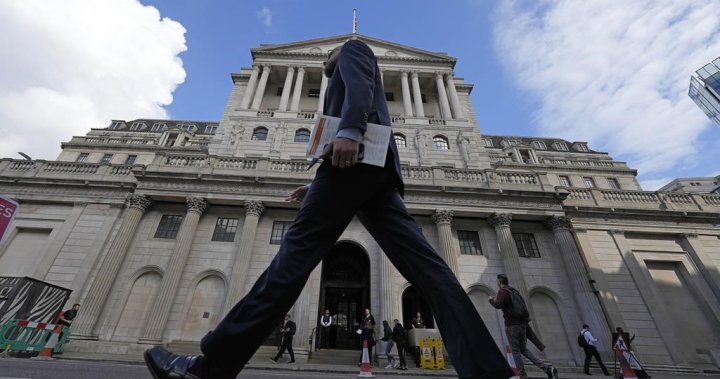Fears of a recession in the British economy have intensified following the Bank of England’s recent decision to raise borrowing costs by more than originally expected. The central bank aimed to combat stubbornly high inflation with the increase, but it will have a significant impact on borrowers, particularly homeowners who need to refinance in the coming months. In a surprising move, the Bank of England raised its main interest rate by half a percentage point to reach a 15-year high of 5%. Only two members of the Monetary Policy Committee opposed the half-point increase. Governor Andrew Bailey warned that if inflation does not show clear signs of decline, further increases may be implemented.
Clearly, the rate-setters were concerned about the failure of inflation in the UK to ease as quickly as predicted. Inflation has proven to be more persistent in the UK compared to other major economies, with many attributing this to the Bank of England’s delayed decision to raise borrowing rates and the impact of Brexit on import costs. On Wednesday, it was revealed that UK inflation unexpectedly remained at 8.7%, causing concerns about the future trajectory of prices after predictions of a modest decline to 8.4%. With wages increasing rapidly, it is evident that high inflation has become entrenched in the economy. Bailey acknowledged the difficulties faced by people with mortgages or loans but emphasized that raising rates now is necessary to prevent a worse scenario in the future.
Central banks across Europe also opted to increase borrowing costs, including the Swiss National Bank and Norway. This follows a global trend where central banks, such as the US Federal Reserve and the European Central Bank, have been rapidly raising interest rates to tackle inflation driven by pandemic-related supply chain disruptions and geopolitical events like Russia’s invasion of Ukraine. Higher interest rates help reduce inflation by making borrowing more expensive for individuals and businesses, leading to potential decreases in spending and demand, thereby alleviating price pressures.
The rate hike in the UK will create additional pressure for borrowers, particularly the 1.4 million households expected to refinance their mortgages throughout the year. There are concerns about the British economy’s outlook, especially as it has managed to avoid recession while Europe’s economy contracted slightly in the first half of the year. The sizable rate increase is likely to be seen in hindsight as an important milestone towards a potential recession.
In the event of a recession, unemployment would inevitably rise, and home repossessions would become more common, which is not a favorable backdrop for the Conservative government, given the upcoming general election where they are trailing the main opposition party in the polls. Despite the potential fallout, Treasury chief Jeremy Hunt emphasized the importance of prioritizing the battle against inflation, as it is the only long-term solution to relieve pressure on mortgage-holding families. Some critics argue that previous interest rate hikes have yet to fully impact the economy due to lag effects, warning that pushing rates too high and driving the economy into recession would worsen the current crisis, resulting in job losses and home losses.
Denial of responsibility! VigourTimes is an automatic aggregator of Global media. In each content, the hyperlink to the primary source is specified. All trademarks belong to their rightful owners, and all materials to their authors. For any complaint, please reach us at – [email protected]. We will take necessary action within 24 hours.


